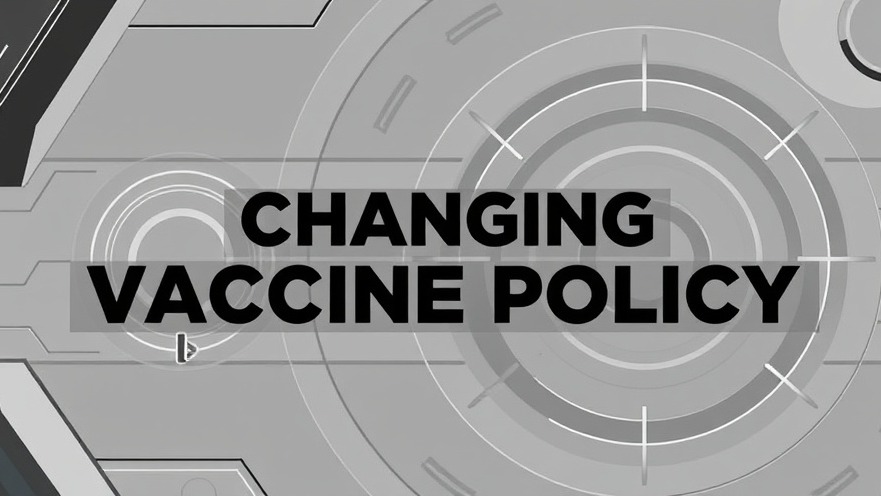
Understanding the Landscape: COVID-19 Vaccines and Boosters
As concerns over COVID-19 continue to shape public health discussions, new policies surrounding vaccine boosters have led to numerous questions among professionals striving to maintain their health and wellness. Recent decisions in states like Florida to end vaccine mandates have added to the existing tension, creating confusion not only about individual protection but also about the broader implications for community health.
Vaccine Policy Changes Amidst Ongoing Health Concerns
Florida's choice to end vaccine mandates reflects a growing trend among states that prioritize personal choice over public health interventions. This decision arrives as both Federal and state bodies adapt their guidelines regarding COVID-19 booster shots. The abrupt shift could leave many wondering about the effectiveness of existing vaccines and the necessity of additional boosters, especially as the virus continues to mutate.
Current CDC Recommendations: Balancing Safety and Skepticism
The Centers for Disease Control and Prevention (CDC) has updated its recommendations, urging individuals to stay informed about booster shots as new variants emerge. This has raised significant debate among health professionals and communities, leading to skepticism about those guidelines given inconsistent messages on vaccine efficacy.
Why Understanding Vaccine Policies Matters for Health and Wellness
For suburban professionals, especially those invested in health and wellness, navigating through these varying policies is critical. Being informed can help individuals make educated decisions on whether to receive a booster shot, especially for those in high-risk categories. Research trends indicate that understanding vaccine dynamics can contribute to better overall health management and fitness practices.
Diverse Perspectives: Weighing the Risks and Benefits of Vaccination
Opinions about vaccine mandates and policies vary widely, highlighting the need for informed discourse. Advocates argue that strict vaccination policies are essential in mitigating the spread of COVID-19 and protecting vulnerable communities, while others assert that personal choice should take precedence. These contrasting views show the complexity of public health messaging amidst an evolving crisis.
Preparing for Potential Policy Shifts: Insights for Health Professionals
As policies regarding COVID-19 vaccination and booster shots continue to evolve, it is essential for health professionals and individuals to stay vigilant. By understanding the legislation and its implications for public health, individuals can better protect themselves and their families. Health and wellness aren’t merely individual pursuits; they intersect deeply with community health. Thus, awareness and proactive measures are more important than ever.
No matter your stance on vaccination, being informed about current health trends—ranging from new research results to the latest in wellness practices—is vital for maintaining healthy lifestyles.
To foster a healthier community, take charge of your health journey through consistent learning and shared experiences. Connect with local health forums and stay engaged with ongoing conversations around public health.
 Add Row
Add Row  Add
Add 




Write A Comment